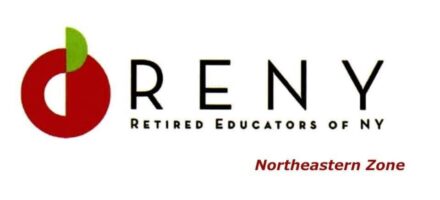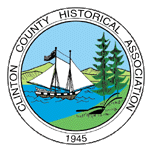Justin Wilson, Chairman of the Town of Peru Planning Board, called the meeting of Wednesday December 10, 2025 to order at 6pm.
PLEDGE OF ALLEGIANCE
ROLL CALL:
JUSTIN WILSON, CHAIRMAN PRESENT
ALISON WEBBINARO, VICE CHAIR ABSENT
DANIEL HAMILTON PRESENT
MARK HAMILTON PRESENT
ROBERT LEPAGE PRESENT
GARRETT MASTIC PRESENT
JERRY MCGOVERN ABSENT
PETER STONE PRESENT
Approval of November 2025 Minutes
J.Wilson shared with the Board the minutes from the last meeting
MOTION:M.Hamilton made a motion to approve the minutes as corrected, Second G.Mastic
Roll Call: D.Hamilton-y,M.Hamilton-y,R.LePage-y,G.Mastic-y,P.Stone-y, J.Wilson-y
MOTION CARRIED
Mr. Wilson opens the floor to Public Hearing. He let everyone know that there are six Board members present, which is enough for a quorum. The applicants are ok to proceed without a full Board
1.P2025-0019 Site Plan Review-Sign Americu Credit Union
280.-1-31.2
700 Bear Swamp Rd
Applicant not present
This is a simple sign change, for name. Dimensions remain the same.
No questions from the Board
MOTION:P.Stone made a motion to approve the application as submitted, Second M.Hamilton
Roll Call: D.Hamilton-y,M.Hamilton-y,R.LePage-y,G.Mastic-y,P.Stone-y, J.Wilson-y
MOTION CARRIED
2.P2025-021 Site Plan Review-Sign Eric Duquette
327 Route 22B
268.-1-31.2
Applicants are present
Mr. Duquette explains the one sided sign will be parallel to the road with small down facing lights, replacing the current 14 year old sign.
No questions from the Board
MOTION:G.Mastic made a motion to approve the application as submitted, Second M.Hamilton
Roll Call: D.Hamilton-y,M.Hamilton-y,R.LePage-y,G.Mastic-y,P.Stone-y, J.Wilson-y
MOTION CARRIED
3.P2025-109 2-Lot Minor Subdivision Donald and Linda Covel
842 Mannix Rd
267.-1-13.1
Mr. Covel here along with Dean Lashway
Mr. Lashway explains the application. The APA boundary is right where the proposed subdivision will be. The portion to be subdivided out will be totally outside the APA, while the portion remaining will be in the APA.
It was acknowledged a SEQRA is required
SEQRA REVIEW:
MOTION:P.Stone made a motion to declare as an unlisted action and the Town of Peru Planning Board as the Lead Agency, Second M.Hamilton
Roll Call: D.Hamilton-y,M.Hamilton-y,R.LePage-y,G.Mastic-y,P.Stone-y, J.Wilson-y
MOTION CARRIED
J.Wilson went over the SEQRA;The Planning Board concurred there are no negative impacts
MOTION:M.Hamilton made a motion to declare negative declaration, Second P.Stone
Roll Call: D.Hamilton-y,M.Hamilton-y,R.LePage-y,G.Mastic-y,P.Stone-y, J.Wilson-y
MOTION CARRIED
MOTION:M.Hamilton made a motion to approve the application as submitted, Second G.Mastic
Roll Call: D.Hamilton-y,M.Hamilton-y,R.LePage-y,G.Mastic-y,P.Stone-y, J.Wilson-y
MOTION CARRIED
OTHER BUSINESS
The Board must elect the officers for the 2026 year.
MOTION:P.Stone made a motion to elect Garrett Mastic to be Chairman, Second M.Hamilton
Roll Call: D.Hamilton-y,M.Hamilton-y,R.LePage-y,G.Mastic-y,P.Stone-y, J.Wilson-y
MOTION CARRIED MOTION:M.Hamilton made a motion to elect Peter Stone as Vice-Chairman Second G.Mastic
Roll Call: D.Hamilton-y,M.Hamilton-y,R.LePage-y,G.Mastic-y,P.Stone-y, J.Wilson-y
MOTION CARRIED
MOTION:G.Mastic made a motion to move Robert LePage from Alternate to Boardmember to cover the seat left by Justin Wilson as he will be deployed for 2026., Second M.Hamilton
Roll Call: D.Hamilton-y,M.Hamilton-y,R.LePage-y,G.Mastic-y,P.Stone-y, J.Wilson-y
MOTION CARRIED
Christine will let the Town Board know these recommendations
MOTION: Mr. Wilson made a motion to adjourn at 7pm
Voice Vote: all agreed
MOTION CARRIED
Taylor Jo Swan
Codes & Zoning Secretary
Codes and Zoning Department
3036 Main street
Peru, NY 12972
(518)-643-2745 ext. 106




 Plattsburgh Blues & Jazz is thrilled to welcome back the Danielle Nicole Band to Retro Live on Sunday, March 29th at 630 PM for an unforgettable night of powerhouse blues, soul, and roots music.
Plattsburgh Blues & Jazz is thrilled to welcome back the Danielle Nicole Band to Retro Live on Sunday, March 29th at 630 PM for an unforgettable night of powerhouse blues, soul, and roots music. PLATTSBURGH, March 4, 2026 – — Clinton Community College’s Drama Club has partnered with Adirondack Regional Theatre (ART) to launch Pick‑Up Plays, a free monthly public script‑reading series designed to bring together students, faculty and members of the local community in an interactive theater experience.
PLATTSBURGH, March 4, 2026 – — Clinton Community College’s Drama Club has partnered with Adirondack Regional Theatre (ART) to launch Pick‑Up Plays, a free monthly public script‑reading series designed to bring together students, faculty and members of the local community in an interactive theater experience.
 PLATTSBURGH, March 3, 2026 –
PLATTSBURGH, March 3, 2026 –  March 12th, 2:30 pm, Meadowbrook Healthcare, 154 Prospect Avenue, Plattsburgh. Welcome to the Witherill with memories shared from the book authored by the late Susan Howel Hamlin.
March 12th, 2:30 pm, Meadowbrook Healthcare, 154 Prospect Avenue, Plattsburgh. Welcome to the Witherill with memories shared from the book authored by the late Susan Howel Hamlin. Customers invited to round up purchases during March to fund critical community services
Customers invited to round up purchases during March to fund critical community services